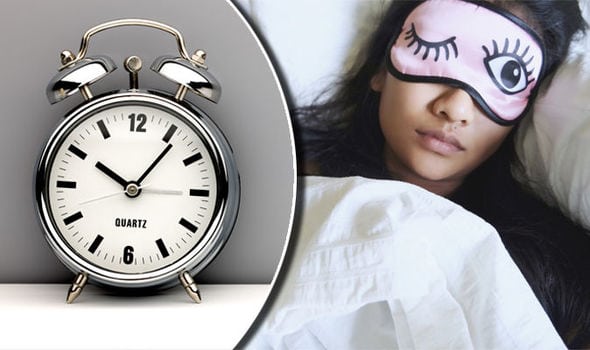Summer’s over and now we are getting ourselves back to our schedules and that includes getting proper sleep. Not only is it good for you, it helps you with your physical and mental well being. Trust us, not only does your body needs sleep, your brain needs sleep too!
There are several reasons to focus on sleep in relation to healthy development. First, sleep is important in brain maturation; meaning there are substantial biological and physiological benefits to managing your circadian rhythm, which is also known as your sleep-wake cycle. The ability to sleep depends on how long one has been awake, the internal clock in the brain and the regular duration and timing of sleep.
Even Bollywood understands the importance of getting a good night’s sleep and how that impacts their overall health. Akshay Kumar is known for going to bed by 10pm so he can get up early for his workouts. Aamir Khan is famous for his clockwork like schedule and that includes his bedtime. Even Kareena Kapoor Khan’s dietician, Rujuta Diwekar also notes the importance of sleep when it comes to weight loss.

Brain Health Is Key
Just like food and water, your sleep health is closely related to your brain health, and some scientists believe improving sleep can delay or reverse cognitive aging. A good night sleep improves cognitive function, increases creativity and imagination and focus. One of the central functions of sleep is that it helps consolidate our long-term memory through strengthening certain neural connections. The brain makes a lot of connections during the day, but not all of them are worth saving; so sleep when the brain streamlines the connections it needs. In fact, the sleep-wake cycle has an important impact on all organ systems; accordingly to various studies including that from Harvard University, a good night sleep helps you manage your weight, glucose, hormones, and reduces heart and diabetes risks, as well as inflammation and one’s risk of cancer.
There is mounting evidence that sleep deprivation has its greatest negative effects on the control of behavior, emotion, and attention. Insufficient or poor quality sleep has been shown to be a risk factor for cognitive impairment and depression. There are direct health consequences of insufficient sleep; such as increased agitation, stress and anxiety. Lack of sleep impairs reasoning, problem-solving, and attention to detail. People with chronic inadequate sleep are also at higher risk for and experience more severe conditions of dementia, depression, heart disease, obesity, diabetes, fall-related injuries, and cancer.

How Long Should You Sleep?
Sleeping on average for seven to eight hours each day is related to better brain and physical health. A good night sleep will help restore the brain by flushing out toxins that build up during the waking hours. The brain — our busiest organ, consumes as much as 25% of our overall daily energy. And as is the case with anything that converts fuel into energy, it produces waste. The glymphatic system which is in our brains can help remove these toxic proteins called beta-amyloid from brain tissue; essentially cleaning our brains like a little vacuum. Neurologists have also discovered that the more waste lying around in the brain, the greater the chances for diseases such as Alzheimer’s.
Yes, There’s An App For That!
As people live longer, the need for trustworthy information on brain function, sleep and cognitive health is greater than ever. Studies have indicated that maintaining your blood pressure, getting regular exercise and eating a diet rich in vegetables, healthy fats and antioxidants all should have a positive impact on brain health cleaning and the ability to get a good night sleep. I use a few apps to manage my sleep-wake cycle. Such as Sleep Cycle and Pillow.
I also use Twilight to manage the blue light on my phone. My device screens adapt to the tie of the day. It filers the flux of blue light emitted by your phone or tablet after sunset and protest your eyes with a soft and pleasant red filter. So when night comes, my devices change colour. It helps me transition from day to night so I can get into relax mode.

I like to see my sleep history by date, sleep time, wake time, hours of sleep and debt, or amount of sleep lost. These apps also help monitor my heart rate which as a runner I find helpful. Consider using one of these apps to ensure a good night sleep and see when you are sleep deficient so you can increase your brain health.
So get into bed, curl up and close those eyes. Because getting a good night sleep shouldn’t be but is highly underrated.
Main Image Photo Credit: Daily Express
Nadine Afari
Author
Our Guest Fitness Expert, Nadine Afari (@fitthoney) received her Masters in Science degree from The University of Toronto then relocated to sunny California to accept a job as a health researcher for The University of Southern California. She has been studying health and medicine for 15 years at som...


















































































































